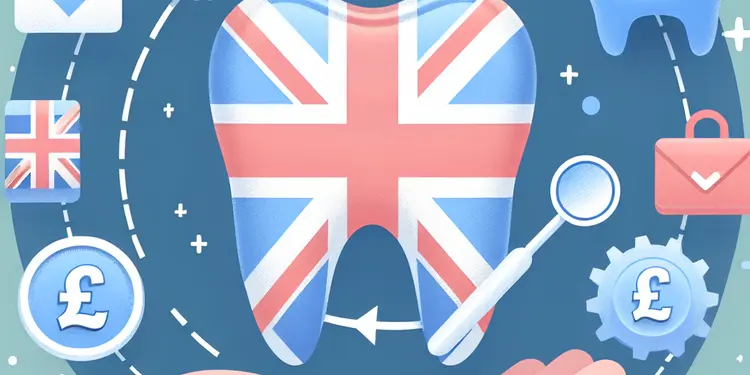
Find Help
More Items From Ergsy search
-
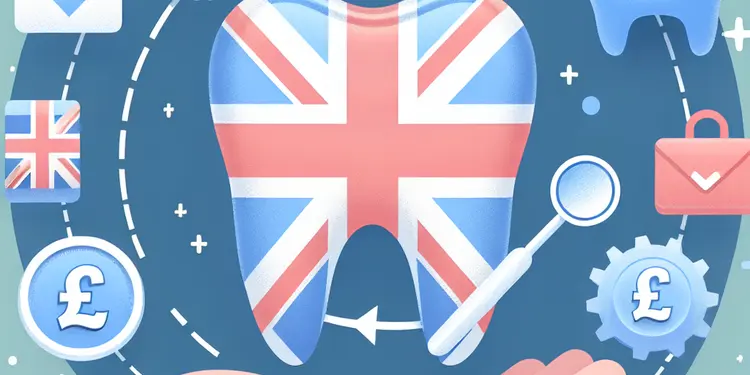
Can tooth decay be reversed?
Relevance: 100%
-
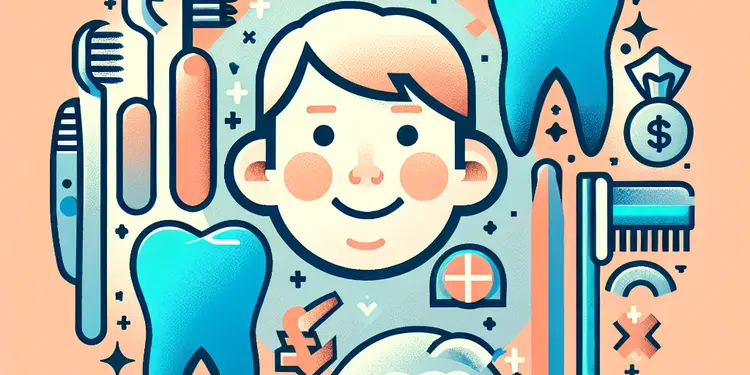
Is tooth decay common in children?
Relevance: 70%
-
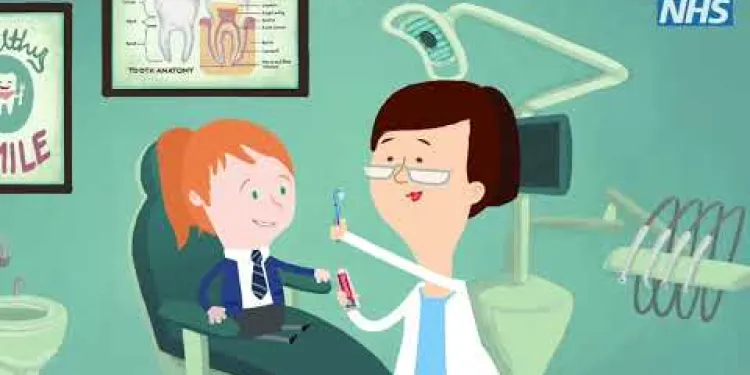
Oral Health Awareness - Tooth Decay
Relevance: 69%
-
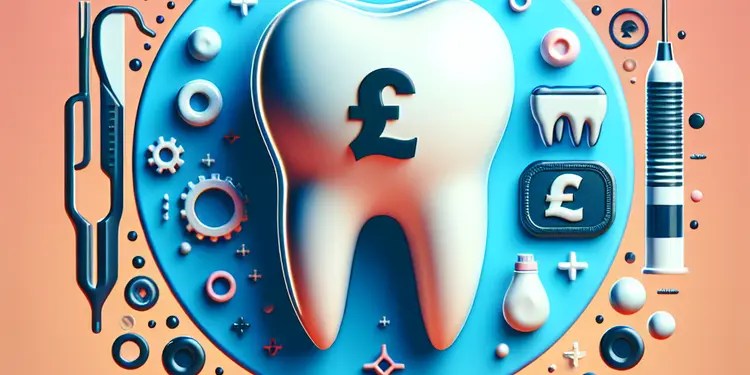
How can I prevent tooth decay?
Relevance: 67%
-

How is tooth decay diagnosed?
Relevance: 67%
-
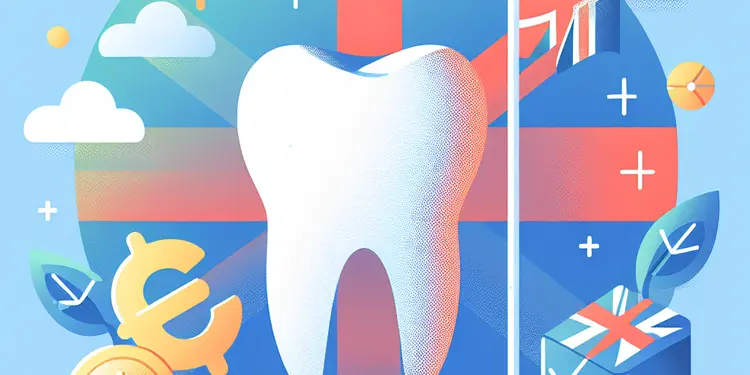
What are the symptoms of tooth decay?
Relevance: 67%
-
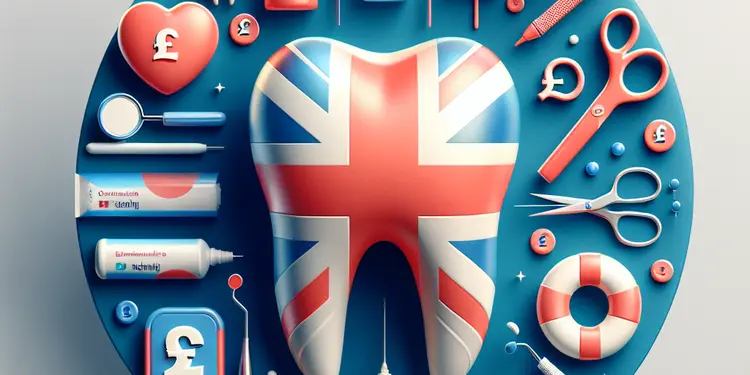
How does fluoride help prevent tooth decay?
Relevance: 67%
-
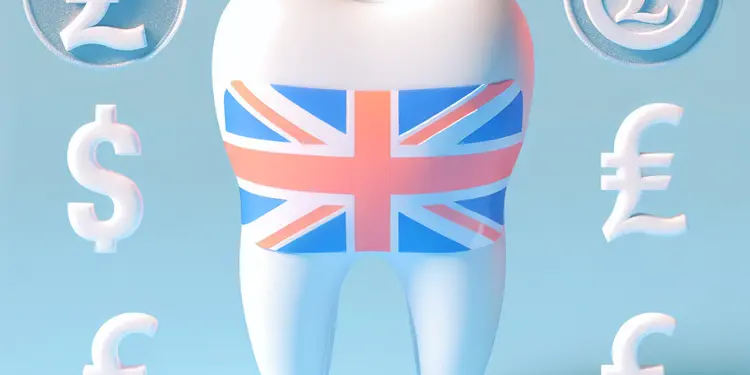
How does diet affect tooth decay?
Relevance: 65%
-
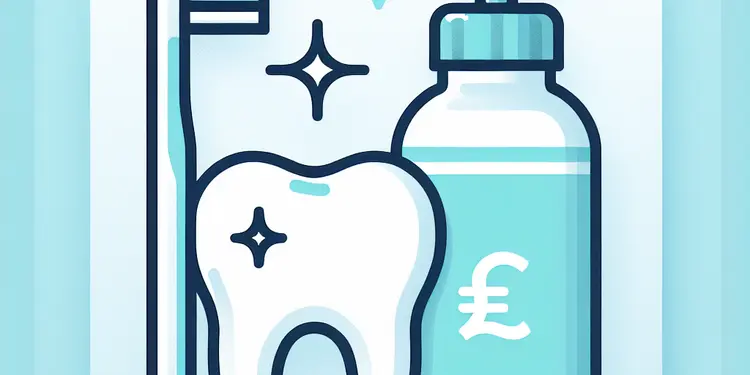
Can using mouthwash prevent tooth decay?
Relevance: 61%
-
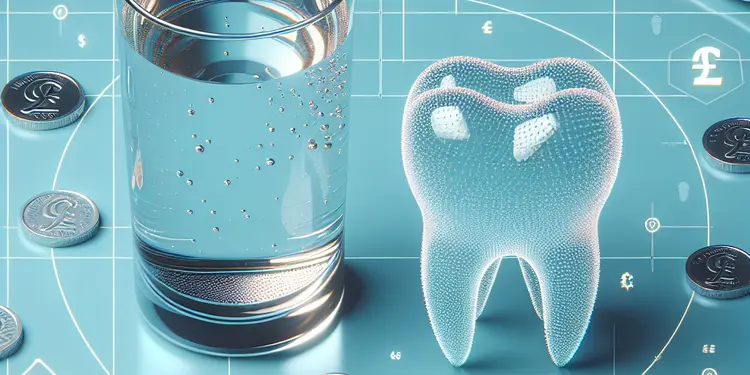
Can drinking water help prevent tooth decay?
Relevance: 57%
-
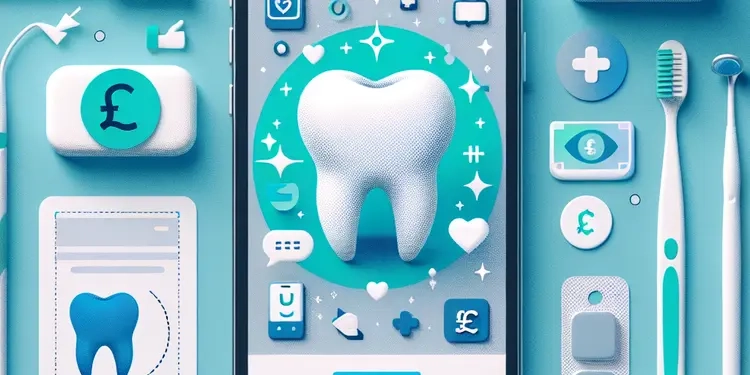
What is tooth decay?
Relevance: 56%
-
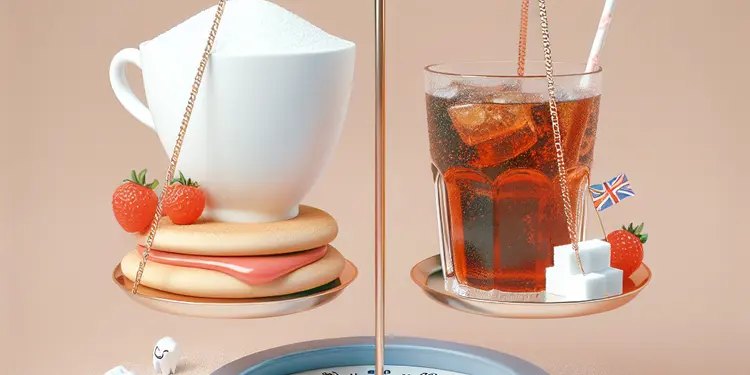
Are sugary drinks worse than sugary foods for causing tooth decay?
Relevance: 55%
-
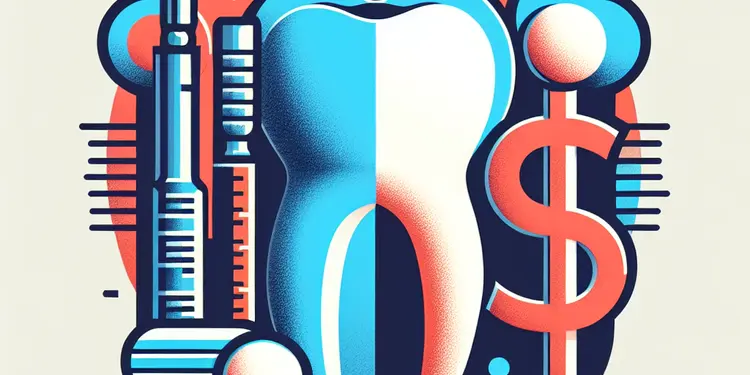
What is the role of dental sealants in preventing tooth decay?
Relevance: 51%
-
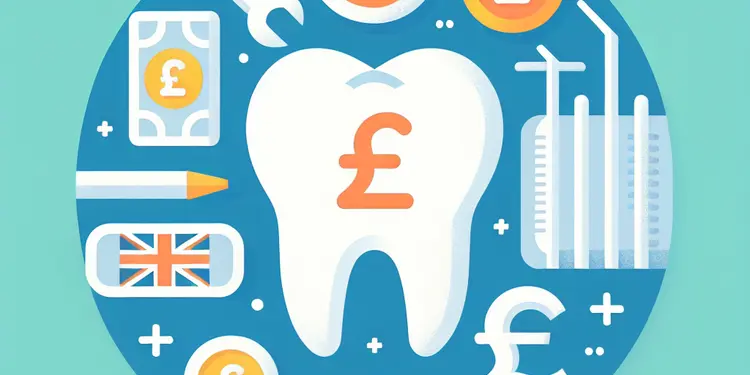
What treatments are available for tooth decay?
Relevance: 46%
-

What is reverse charge VAT?
Relevance: 34%
-
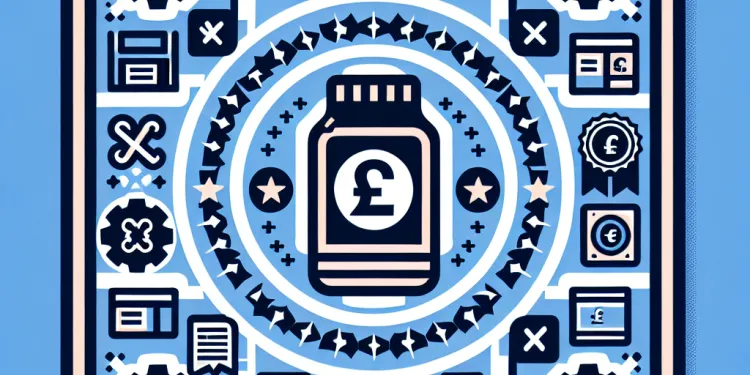
Can product recalls be reversed?
Relevance: 32%
-

Can the decision to leave WHO be reversed?
Relevance: 29%
-
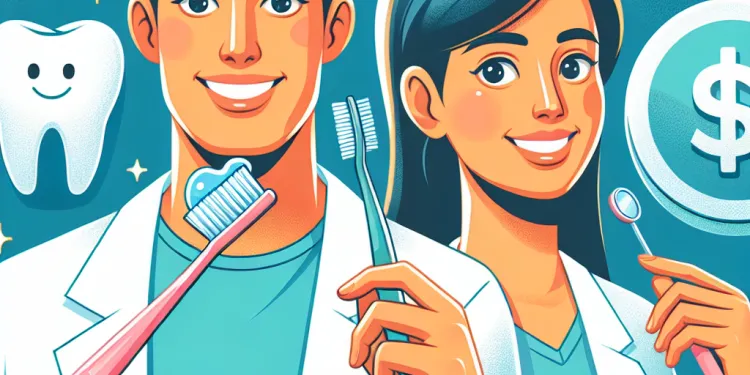
Dental Health: Tips for All Ages
Relevance: 25%
-

How can I satisfy my sweet tooth without consuming sugar?
Relevance: 21%
-

Are Turkey Teeth only for aesthetic purposes?
Relevance: 19%
-
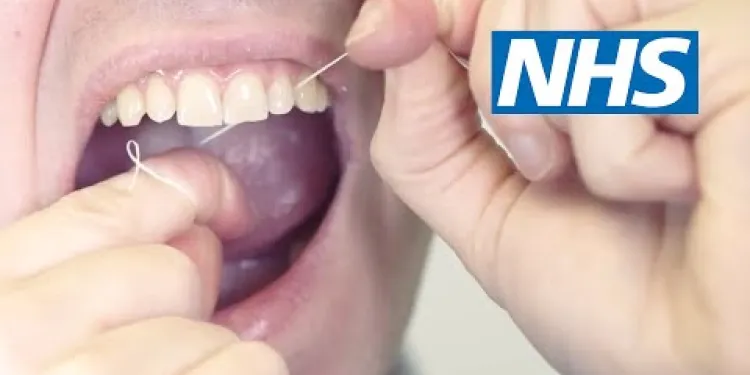
How to floss | NHS
Relevance: 19%
-
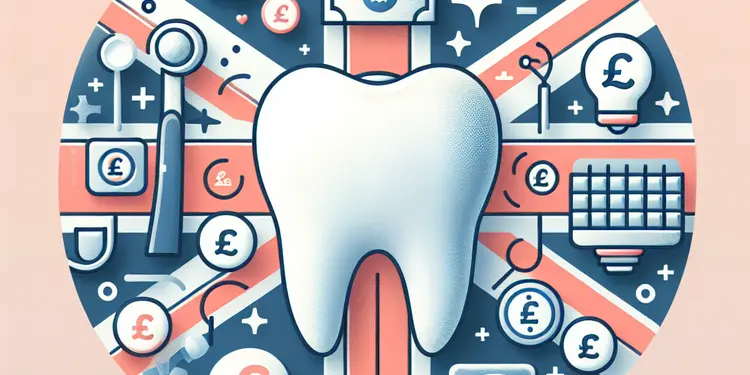
What is the difference between veneers and crowns?
Relevance: 19%
-

Is orange juice acidic and can it affect teeth?
Relevance: 17%
-
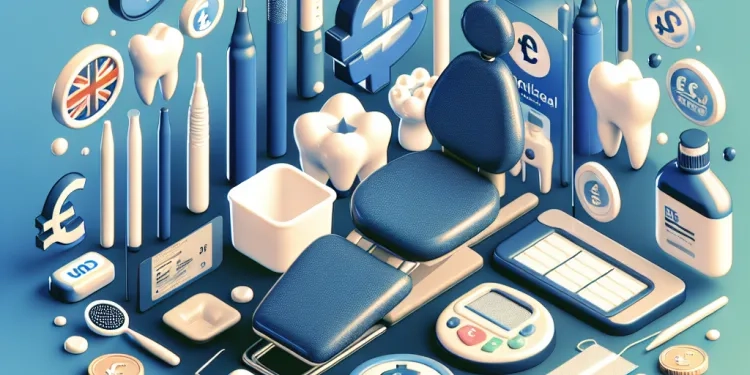
What treatments are covered by the NHS dental service?
Relevance: 15%
-

How much sugar should I eat every day?
Relevance: 15%
-
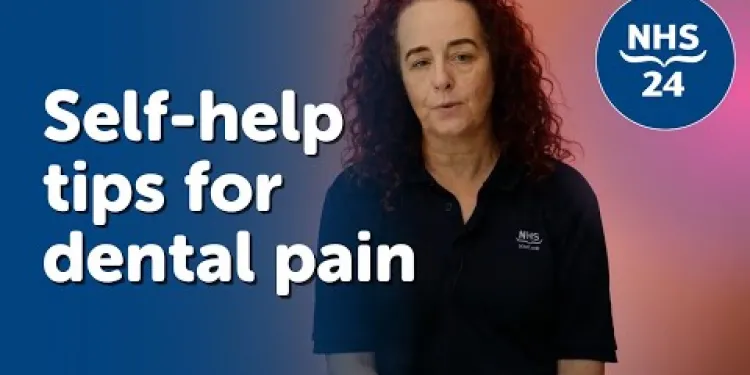
NHS 24 | Self-help tips for dental pain
Relevance: 15%
-

Are Turkey Teeth the same as veneers?
Relevance: 14%
-
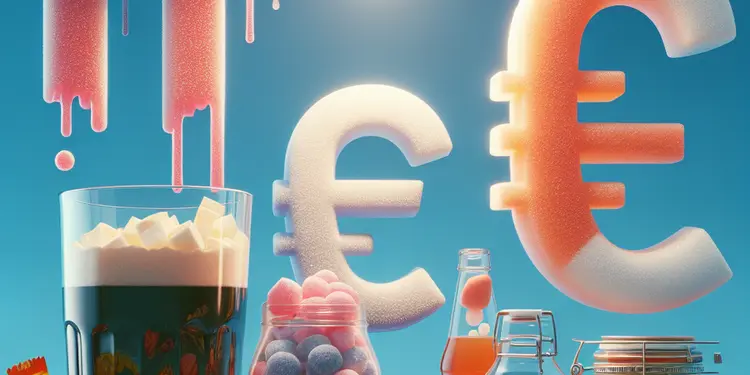
What are 'free sugars' and why should they be limited?
Relevance: 13%
-
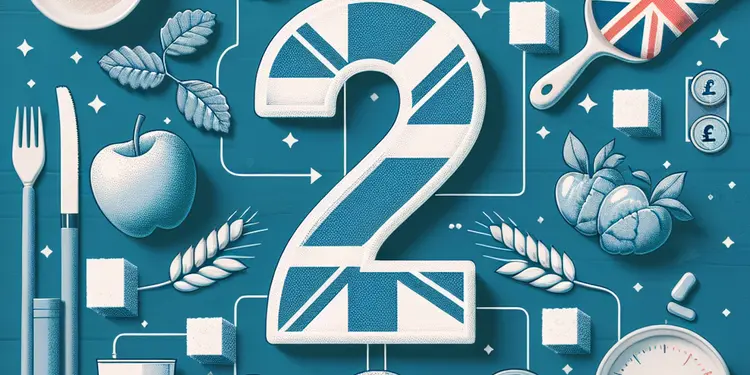
What is the role of sugar in a balanced diet?
Relevance: 13%
-
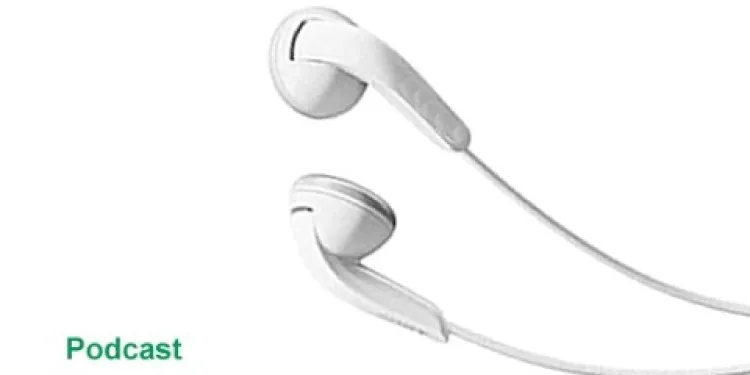
Coping with dry mouth
Relevance: 13%
-
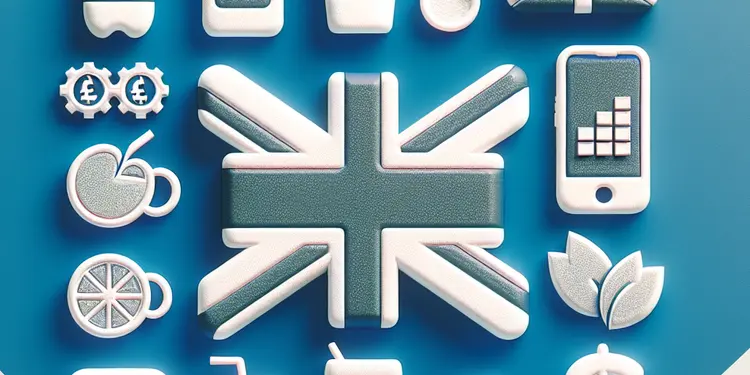
Why is it important to limit sugar intake?
Relevance: 13%
-
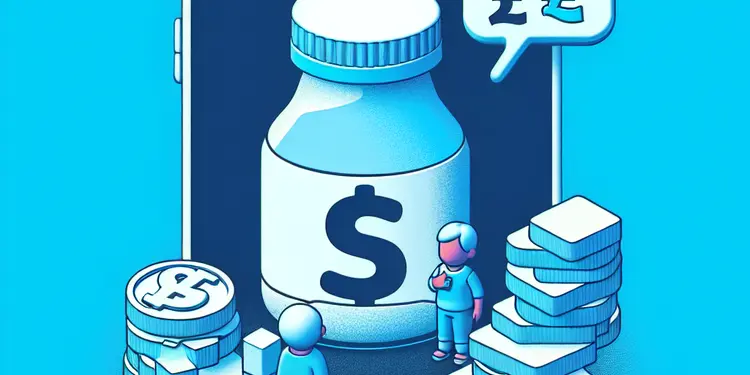
How many grams of sugar should a child consume daily?
Relevance: 13%
-

How does junk food affect health?
Relevance: 13%
-

Can I modify a car I'm leasing or financing?
Relevance: 12%
-

Can Type 2 Diabetes go away?
Relevance: 12%
-
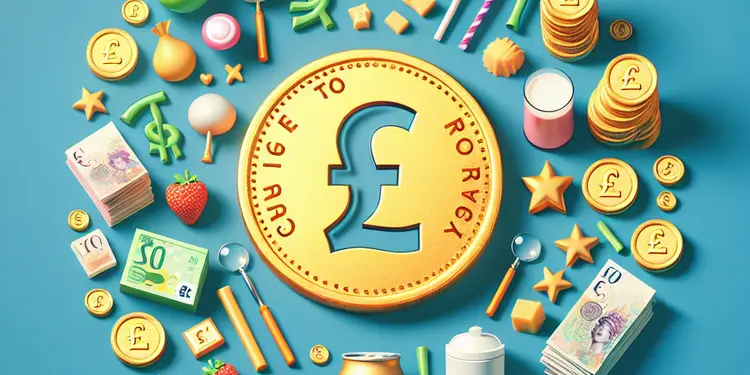
What are the long-term goals of the sugar tax?
Relevance: 12%
-

Can I get Turkey Teeth if I have existing dental issues?
Relevance: 10%
-

Is the US the only country to leave the WHO?
Relevance: 10%
-
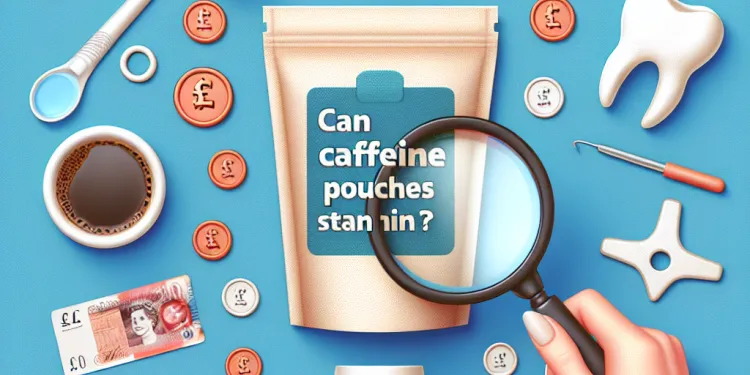
Can caffeine pouches stain teeth?
Relevance: 9%
-
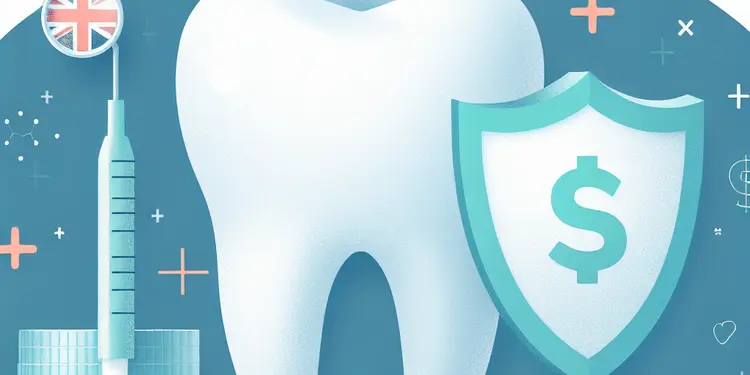
What treatments are covered by the NHS dental services?
Relevance: 9%
Understanding Tooth Decay
Tooth decay, also known as dental caries or cavities, is a common oral health issue caused by the breakdown of tooth enamel. This process occurs due to the action of bacteria on sugars in the mouth, which produce acids that erode the enamel over time. If not addressed, tooth decay can lead to pain, infection, and even tooth loss.
Can Tooth Decay be Reversed?
The possibility of reversing tooth decay largely depends on the stage at which it is detected. Early stages of tooth decay, particularly when it is limited to enamel, can often be reversed or halted. This stage is characterized by white spots on the teeth where minerals have been lost, a condition known as demineralization. If the decay progresses to dentine or pulp, it becomes irreversible and requires professional intervention such as fillings or root canals.
Methods to Reverse Early Tooth Decay
To reverse early tooth decay, it is crucial to focus on remineralization, which involves restoring lost minerals to the teeth. Fluoride plays an essential role in this process and is widely available in toothpaste and mouth rinses. Fluoride helps to harden enamel and make it more resistant to acid attacks.
Good oral hygiene is foundational to preventing and reversing early decay. Brushing twice daily with fluoride toothpaste and flossing regularly can remove plaque and prevent the buildup of bacteria. Reducing sugar intake is also critical, as sugars fuel the acid-producing bacteria. Opt for a balanced diet rich in vitamins and minerals that support oral health.
Regular Dental Visits
Regular dental check-ups are vital for maintaining oral health and catching decay early. In the UK, the NHS recommends routine check-ups, which provide opportunities for dentists to spot signs of demineralization and advise on appropriate care. Professional cleanings can remove tartar and plaque, contributing to healthier teeth.
Conclusion
While advanced tooth decay typically requires professional treatment, early stages of tooth decay can often be reversed with proper care and attention. Brushing and flossing regularly, using fluoride products, controlling dietary sugars, and maintaining regular dental appointments are effective strategies for managing early decay. Emphasizing oral hygiene and routine check-ups are key steps in both preventing further decay and promoting overall oral health.
What is Tooth Decay?
Tooth decay is when teeth get damaged. This happens when bad germs eat the sugar in your mouth. The germs make bad stuff that hurts your teeth. If teeth decay gets bad, it can hurt, cause infections, and you might lose a tooth.
Can We Make Bad Teeth Better?
We can fix tooth decay if we find it early. When it just starts, you see white spots on teeth. This means minerals in teeth are gone. We can fix this stage. If decay goes too deep, a dentist must fix it.
How to Fix Tooth Decay Early
To fix early tooth decay, we need to add minerals back to teeth. Fluoride helps a lot. It is in toothpaste and mouthwash. Fluoride makes teeth strong.
Brushing teeth twice a day with fluoride toothpaste and using floss helps keep teeth clean. Eat less sugar because it helps germs. Eat healthy foods full of vitamins and minerals for strong teeth.
Visit the Dentist
Going to the dentist helps keep teeth healthy. In the UK, you should see a dentist often. Dentists can find early problems and help fix them. They clean your teeth to keep them healthy.
Finish
If tooth decay is bad, a dentist needs to help. But, if we catch decay early, we can fix it. Brush and floss teeth often, use fluoride, eat less sugar, and visit the dentist. Taking care of teeth stops decay and keeps your mouth healthy.
Frequently Asked Questions
What is tooth decay?
Tooth decay is the destruction of tooth enamel, the hard outer layer of your teeth, caused by acids made by bacteria in the mouth.
Can tooth decay be reversed?
Early stages of tooth decay, known as demineralization, can be reversed with good oral hygiene and fluoride treatments.
How does fluoride help reverse tooth decay?
Fluoride helps by remineralizing tooth enamel, making it stronger and more resistant to acid attacks from bacteria.
What are the signs of early tooth decay?
Early tooth decay is often not visible, but can manifest as white spots on the teeth where minerals have been lost.
Is it possible to reverse a cavity?
A full-blown cavity that has formed a hole in the tooth cannot be reversed and needs professional treatment.
What role does diet play in reversing tooth decay?
A balanced diet low in sugar and high in calcium and phosphates can aid in the remineralization process.
How often should I brush my teeth to prevent or reverse tooth decay?
Brushing twice a day with fluoride toothpaste is recommended to prevent and help reverse early decay.
Can mouthwash help in reversing tooth decay?
Fluoride mouthwash can aid in remineralizing enamel and preventing decay from advancing.
Are there any home remedies to reverse tooth decay?
While no home remedy can replace professional dental care, maintaining good oral hygiene and using products with fluoride can aid in prevention and reversal of early decay.
Does flossing contribute to reversing tooth decay?
Flossing removes plaque and food particles between teeth, reducing the risk of decay and supporting overall oral health.
How does dental sealant help in preventing decay?
Dental sealants are protective coatings applied to the chewing surfaces of back teeth, preventing food and bacteria from getting into grooves and causing decay.
Can natural supplements aid in reversing tooth decay?
Supplements like vitamin D and calcium may support dental health, but should be used alongside fluoride treatments and good oral hygiene.
Is it possible to reverse tooth decay without visiting a dentist?
Early decay can be managed at home with proper oral care, but regular dental check-ups are crucial for monitoring and professional guidance.
Does xylitol help in reversing tooth decay?
Xylitol, a sugar substitute, can reduce the amount of bacteria in the mouth and aid in the remineralization process.
How long does it take to reverse early tooth decay?
The reversal of early decay can vary based on individual factors like diet, oral hygiene, and fluoride use, taking several weeks to months.
Can drinking water aid in reversing tooth decay?
Drinking water, especially fluoridated water, helps wash away food particles and acids, supporting remineralization.
What are the consequences of untreated tooth decay?
Untreated tooth decay can lead to cavities, tooth pain, infections, and even tooth loss.
Can oil pulling reverse tooth decay?
There is no scientific evidence that oil pulling can reverse tooth decay, though it may improve oral hygiene.
How important is professional cleaning in reversing tooth decay?
Professional cleaning removes plaque and tartar that cannot be removed by brushing and flossing alone, vital for preventing decay.
Can stress management help in reversing tooth decay?
Managing stress can improve overall health and may indirectly benefit oral health, but stress management alone cannot reverse decay.
What is tooth decay?
Tooth decay means your tooth is getting a hole.
This happens when germs in your mouth make your tooth sick.
It is important to keep your teeth clean.
Ask an adult for help to brush your teeth twice a day.
Use tools like a toothbrush and toothpaste.
Try using a timer to make sure you brush long enough.
Visit a dentist regularly for check-ups.
Tooth decay is when the hard part on the outside of your teeth gets damaged. This hard part is called enamel. Tiny germs in your mouth make acids, and these acids hurt your teeth.
Can Tooth Decay Be Fixed?
Tooth decay means your teeth are damaged. But don't worry! Sometimes, you can make your teeth strong again if you catch it early.
Here are some tips to help:
- Brush your teeth two times every day.
- Use toothpaste with fluoride. Fluoride helps make teeth strong.
- Eat healthy foods. Try to eat less sugar and sweets.
- Visit the dentist. They help keep your teeth healthy.
- Ask a grown-up for help if you are confused.
Using these tips can help stop tooth decay!
When teeth start to get bad, it is called demineralization. You can make your teeth better again by brushing well and using fluoride.
How does fluoride help fix teeth?
Fluoride is a mineral that helps make your teeth strong. It can stop tiny holes in your teeth from getting bigger. These tiny holes are called tooth decay.
Fluoride works like a shield. It fights the germs that hurt your teeth. It also helps to fix any little holes in your teeth.
Here are some tips to help you:
- Brush your teeth with fluoride toothpaste every day.
- Drink water with fluoride in it.
- Visit the dentist for fluoride treatments.
Fluoride is something that makes teeth strong. It helps fix the outside of teeth, called enamel. This makes teeth tougher and stops them from getting hurt by germs.
What are the signs of early tooth decay?
Tooth decay can start slowly, so it's good to catch it early. Here are some signs:
- Your tooth might hurt.
- You might see a white, brown, or black spot on your tooth.
- Your tooth might feel sensitive to hot or cold things.
If you notice these signs, it's a good idea to see a dentist. They can help fix the problem early.
Here are some tips to keep your teeth healthy:
- Brush your teeth two times a day with toothpaste.
- Floss your teeth to clean between them.
- Eat less sweets and sugary drinks.
Using pictures or videos can help you understand more about tooth care.
At first, you might not see that a tooth is starting to decay. But there might be white spots on the teeth. This happens when some minerals are gone from the teeth.
Can a cavity get better?
If you have a big hole in your tooth, it means you have a cavity. A dentist needs to fix it. You can't make it better on your own.
How does food help fix tooth decay?
Eating healthy foods can help make your teeth strong and fix cavities. Try to eat less sugar and more fruits and vegetables. Drinking water and milk is good for your teeth too. Ask a dentist for help if you need more advice.
Eating the right foods can help make your teeth strong again. Eating less sugar and more foods with calcium and phosphates is good for your teeth.
How often should I brush my teeth to keep them healthy?
Brush your teeth two times every day. This helps keep your teeth strong and stops them from getting holes.
Here are some tips to help:
- Use a soft toothbrush and a little bit of toothpaste.
- Take your time and brush all your teeth.
- Ask an adult for help if you need it.
Brush your teeth two times every day with toothpaste that has fluoride. This helps stop and fix early holes in your teeth.
Can Mouthwash Fix Tooth Decay?
Mouthwash is a liquid you swish around in your mouth. It can help keep your mouth clean.
But mouthwash cannot fix a tooth that is already decayed or damaged.
Tooth decay happens when germs in your mouth make holes in your teeth.
To stop tooth decay, brush your teeth every day and see a dentist regularly.
If you have trouble reading, try using pictures, audiobooks, or ask someone to help you understand.
Fluoride mouthwash can help make teeth strong again and stop them from getting more holes or damage.
Can you fix cavities at home?
If you have a cavity, there are some things you can do at home to help. But remember, it's always best to see a dentist too.
- Brush Teeth: Brush your teeth twice a day with fluoride toothpaste to keep them strong.
- Floss: Use floss to clean between your teeth every day.
- Healthy Food: Eat plenty of fruits and vegetables and avoid too much sugar.
- Drink Water: Drink water after meals to help wash away food bits.
But it's important to visit a dentist to help with cavities. They know how to fix them best!
Home tricks can't take the place of the dentist. But you can help keep your teeth healthy by brushing well and using toothpaste with fluoride. This can stop tiny holes from getting worse.
Can flossing help fix tooth decay?
Flossing helps clean your teeth. It can stop new tooth decay. Use floss every day. It helps keep teeth healthy. Here are some tips to help you: - Use floss every day. - Brush your teeth twice a day. - Visit the dentist for check-ups. - Eat healthy snacks like fruits and vegetables. These steps can help keep your teeth strong and healthy!Flossing helps clean the spaces between your teeth. It takes away sticky stuff called plaque and bits of food. This keeps your mouth healthy and helps stop holes in your teeth.
How do dental sealants stop teeth from going bad?
Dental sealants are a special coating put on teeth.
They cover the deep parts of teeth where food can get stuck.
This helps keep food and germs out.
When food and germs can't reach the teeth, they don't go bad as easily.
Sealants act like a shield for your teeth.
If you can't brush your teeth well, sealants help protect them.
Ask a dentist if sealants are good for you.
Using pictures and videos can help you understand more.
An adult can also help you learn about dental sealants.
Dental sealants are special covers that go on the top of back teeth. They stop food and germs from getting stuck in the little gaps, so the teeth don’t get holes.
Can natural supplements help fix tooth decay?
Tooth decay means your tooth is getting damaged. We want to know if natural supplements can help make it better.
Natural supplements are things like vitamins or minerals. Some people take them to stay healthy.
Here are some things that might help:
- Brush your teeth: Do this 2 times every day.
- Eat healthy food: Fruits and veggies are good for teeth.
- Visit the dentist: They can help if you have tooth problems.
Remember, always check with a dentist before using any supplement.
Vitamins like vitamin D and calcium can help keep your teeth healthy. But don't forget to also use fluoride and brush your teeth regularly to keep them clean.
Can you fix a hole in your tooth without going to the dentist?
Here is a simpler way to think about the same question:
Is there a way to make a bad tooth better without seeing the dentist?
If a tooth starts to get a hole or feels bad, it might be tooth decay. There are things you can try at home to stop it from getting worse.
- Brush your teeth well every day.
- Use toothpaste that helps fight tooth decay.
- Eat healthy foods and avoid too much sugar.
If your tooth still hurts, it is a good idea to visit a dentist to get help.
You can use tools like a timer to make sure you brush your teeth for at least two minutes. Some apps can remind you to brush your teeth twice a day.
You can take care of early tooth problems at home by brushing and flossing. It's important to visit the dentist regularly. They can help you keep your teeth healthy and check if there's anything else that needs to be done.
Can xylitol help fix tooth decay?
Xylitol is a sugar substitute. It can help lower the amount of germs in the mouth. It also helps make teeth strong again.
How long does it take to fix early tooth decay?
Early tooth decay happens when your teeth start to get holes called cavities. If you catch it early, you can fix it by taking good care of your teeth.
- Brush your teeth twice a day with a soft toothbrush and toothpaste.
- Use dental floss to clean between your teeth every day.
- Eat healthy foods like fruits and vegetables, and drink water instead of sugary drinks.
- Visit the dentist regularly for check-ups.
The time it takes to fix early tooth decay can be different for everyone. It might take a few weeks to a few months. Ask your dentist for advice. They can help you take care of your teeth.
How long it takes to make a tooth better can be different for each person. It depends on things like what you eat, how often you brush your teeth, and if you use toothpaste with fluoride. It can take a few weeks to a few months.
Can drinking water help make teeth better?
Drinking water is good for your teeth. Water with fluoride is even better. It helps clean away food bits and acids. This helps make your teeth strong again.
What happens if you don't treat a bad tooth?
If you don't take care of a bad tooth, it can get worse. Here are some things that might happen:
- Your tooth might hurt a lot.
- You might get a hole in your tooth.
- You could have a bad taste in your mouth.
- Your gums might swell or become red.
- The bad tooth might make it hard to eat.
- You might get a bad infection.
To help, you can:
- Brush your teeth every day.
- See a dentist when your tooth hurts.
- Use a soft toothbrush.
- Avoid too many sweets.
- Get help from a grown-up if you're worried.
If you do not take care of tooth decay, it can cause holes in your teeth, make your teeth hurt, and lead to infections. You might even lose a tooth.
Can oil pulling help with tooth decay?
Oil pulling is when you swish oil, like coconut oil, around in your mouth. Some people think it can help keep your teeth healthy.
If your teeth have tooth decay, they have tiny holes that need fixing. Oil pulling alone cannot fix these holes.
To help your teeth, also brush them twice a day with toothpaste that has fluoride. Visit the dentist regularly for check-ups.
If you want to try oil pulling, talk to a dentist first. They can give you advice and tips.
No one has proved with science that oil pulling can fix cavities. But it might help keep your mouth clean.
Why is it important to get your teeth cleaned by a dentist?
Getting your teeth cleaned by a dentist is very important. They help keep your teeth strong and healthy.
Here are some reasons why:
- Stops decay: Dentists clean away germs that cause holes in teeth.
- Makes teeth stronger: Clean teeth are healthier and can stay strong.
- Prevents pain: When teeth are clean, they hurt less.
If reading is hard, tools like audiobooks can read words out loud. Picture books can also help explain things better.
Seeing a dentist helps clean your teeth better than just brushing and flossing. This stops them from getting rotten and hurting. It is very important for healthy teeth.
Can managing stress help stop teeth from getting worse?
Calm helps us feel better and healthier. If we take care of stress, it can make us feel stronger. But just being calm can't fix teeth that are already hurt.
Useful Links
This website offers general information and is not a substitute for professional advice.
Always seek guidance from qualified professionals.
If you have any medical concerns or need urgent help, contact a healthcare professional or emergency services immediately.
Some of this content was generated with AI assistance. We’ve done our best to keep it accurate, helpful, and human-friendly.
- Ergsy carfully checks the information in the videos we provide here.
- Videos shown by Youtube after a video has completed, have NOT been reviewed by ERGSY.
- To view, click the arrow in centre of video.
- Most of the videos you find here will have subtitles and/or closed captions available.
- You may need to turn these on, and choose your preferred language.
- Go to the video you'd like to watch.
- If closed captions (CC) are available, settings will be visible on the bottom right of the video player.
- To turn on Captions, click settings .
- To turn off Captions, click settings again.
More Items From Ergsy search
-

Can tooth decay be reversed?
Relevance: 100%
-

Is tooth decay common in children?
Relevance: 70%
-

Oral Health Awareness - Tooth Decay
Relevance: 69%
-

How can I prevent tooth decay?
Relevance: 67%
-

How is tooth decay diagnosed?
Relevance: 67%
-

What are the symptoms of tooth decay?
Relevance: 67%
-

How does fluoride help prevent tooth decay?
Relevance: 67%
-

How does diet affect tooth decay?
Relevance: 65%
-

Can using mouthwash prevent tooth decay?
Relevance: 61%
-

Can drinking water help prevent tooth decay?
Relevance: 57%
-

What is tooth decay?
Relevance: 56%
-

Are sugary drinks worse than sugary foods for causing tooth decay?
Relevance: 55%
-

What is the role of dental sealants in preventing tooth decay?
Relevance: 51%
-

What treatments are available for tooth decay?
Relevance: 46%
-

What is reverse charge VAT?
Relevance: 34%
-

Can product recalls be reversed?
Relevance: 32%
-

Can the decision to leave WHO be reversed?
Relevance: 29%
-

Dental Health: Tips for All Ages
Relevance: 25%
-

How can I satisfy my sweet tooth without consuming sugar?
Relevance: 21%
-

Are Turkey Teeth only for aesthetic purposes?
Relevance: 19%
-

How to floss | NHS
Relevance: 19%
-

What is the difference between veneers and crowns?
Relevance: 19%
-

Is orange juice acidic and can it affect teeth?
Relevance: 17%
-

What treatments are covered by the NHS dental service?
Relevance: 15%
-

How much sugar should I eat every day?
Relevance: 15%
-

NHS 24 | Self-help tips for dental pain
Relevance: 15%
-

Are Turkey Teeth the same as veneers?
Relevance: 14%
-

What are 'free sugars' and why should they be limited?
Relevance: 13%
-

What is the role of sugar in a balanced diet?
Relevance: 13%
-

Coping with dry mouth
Relevance: 13%
-

Why is it important to limit sugar intake?
Relevance: 13%
-

How many grams of sugar should a child consume daily?
Relevance: 13%
-

How does junk food affect health?
Relevance: 13%
-

Can I modify a car I'm leasing or financing?
Relevance: 12%
-

Can Type 2 Diabetes go away?
Relevance: 12%
-

What are the long-term goals of the sugar tax?
Relevance: 12%
-

Can I get Turkey Teeth if I have existing dental issues?
Relevance: 10%
-

Is the US the only country to leave the WHO?
Relevance: 10%
-

Can caffeine pouches stain teeth?
Relevance: 9%
-

What treatments are covered by the NHS dental services?
Relevance: 9%


